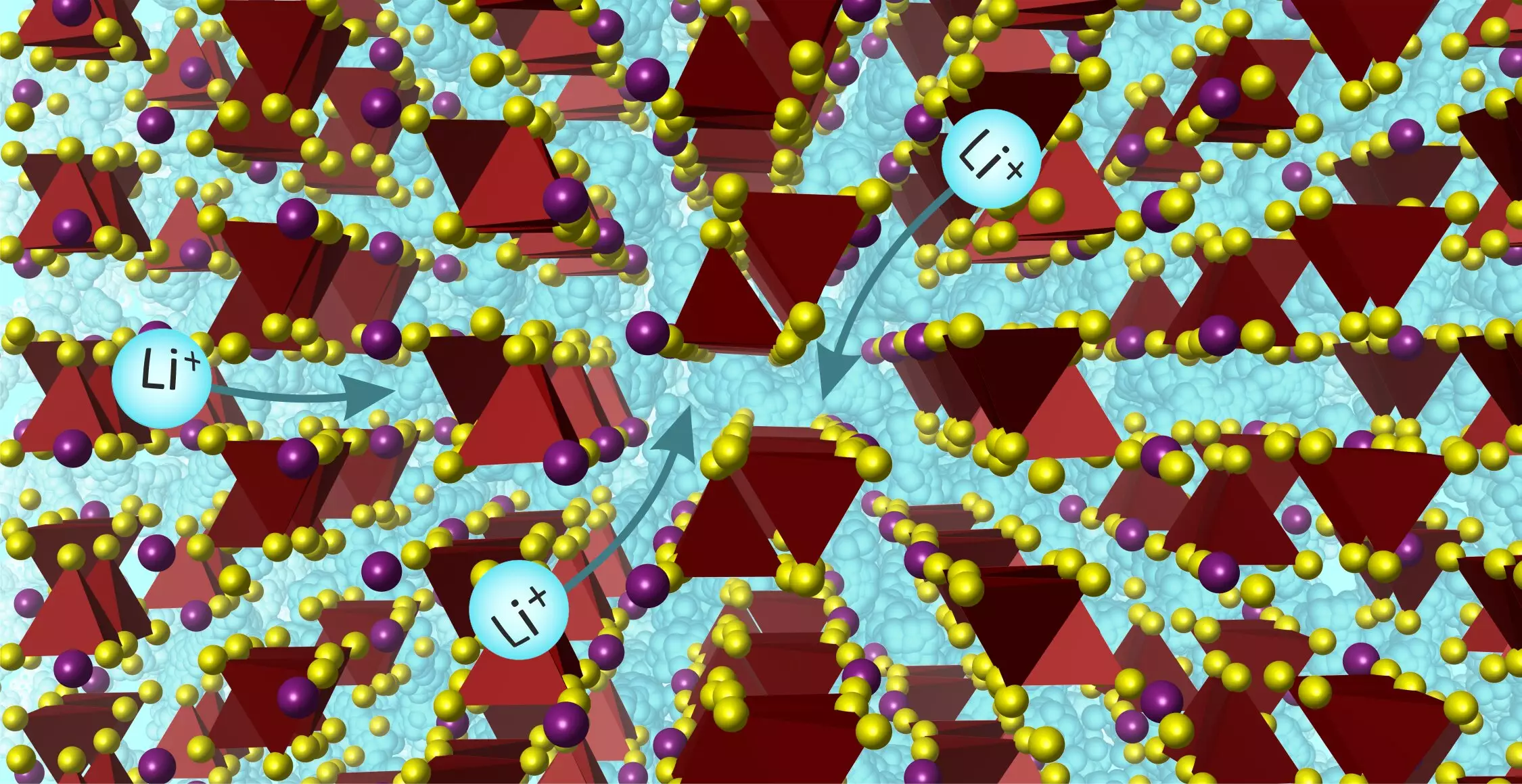Materials science continues to face a significant challenge in the design and discovery of innovative materials that address pressing global priorities, such as achieving Net Zero. In an exciting breakthrough, researchers at the University of Liverpool have made remarkable progress in this field. Their latest paper, titled “Superionic lithium transport via multiple coordination environments defined by two anion packing,” published in the prestigious journal Science, unveils the discovery of a solid material that exhibits rapid lithium ion conductivity. This material has the potential to replace liquid electrolytes in lithium-ion battery technology, thereby improving safety and energy capacity. Let us explore this groundbreaking research and its implications on sustainable materials design and development.
The University of Liverpool’s interdisciplinary research team successfully synthesized the solid material in the laboratory and subsequently determined its atomic structure. By doing so, they challenged the existing understanding of a high-performance solid-state electrolyte. Previous research primarily focused on solids with a limited range of ionic environments, disregarding solid materials with diverse coordination environments. However, this discovery demonstrates that solid materials with numerous coordination environments can exhibit excellent performance in terms of lithium ion conductivity. This finding expands the chemical space for further discoveries, promising significant advances in materials science.
The Role of AI in Materials Discovery
Recent reports and media coverage have highlighted the role of artificial intelligence (AI) in materials discovery. However, the University of Liverpool’s research distinguishes itself from these approaches. While AI tools are often employed independently and tend to recreate known materials, this study utilized AI in conjunction with expert knowledge. By merging computational and experimental workflows, the research team harnessed the power of AI and physics-based calculations to support decisions made by chemistry experts. This unique combination allowed for a comprehensive exploration of composition, structure, and property relationships in materials. Therefore, this study demonstrates that AI, when guided by human expertise, becomes a valuable tool for materials discovery, facilitating the identification of novel and high-performance materials.
The discovery of this new material not only presents an exciting development in the field of solid-state electrolytes but also opens up new possibilities for optimizing its chemical properties and identifying other materials with similar characteristics. By understanding the unique structure and composition of this material, materials scientists can now leverage this knowledge to design other high-performance materials that rely on the fast motion of ions in solids. This disruptive design approach offers a promising route to accelerate the discovery of sustainable materials that can revolutionize the energy storage industry and pave the way for a cleaner and more sustainable future.
The success of this research demonstrates the importance of collaboration and interdisciplinary approaches in materials science. The study involved researchers from various departments and research centers within the University of Liverpool, including the Department of Chemistry, Materials Innovation Factory, Leverhulme Research Center for Functional Materials Design, Stephenson Institute for Renewable Energy, Albert Crewe Center, and School of Engineering. By combining expertise from different fields, the research team was able to address the complex challenges associated with materials discovery, ultimately leading to the groundbreaking findings outlined in the paper.
The University of Liverpool’s research on the superionic lithium transport material represents a significant milestone in materials science. The discovery of a solid material with high lithium ion conductivity brings us one step closer to safer and more efficient lithium-ion batteries for electric vehicles and electronic devices. Moreover, the study showcases the value of integrating AI tools with human expertise to enhance materials discovery, enabling the identification and design of high-performance materials. As the field of materials science continues to advance, interdisciplinary collaborations and innovative approaches will be crucial in overcoming global challenges and achieving a sustainable future.


Leave a Reply